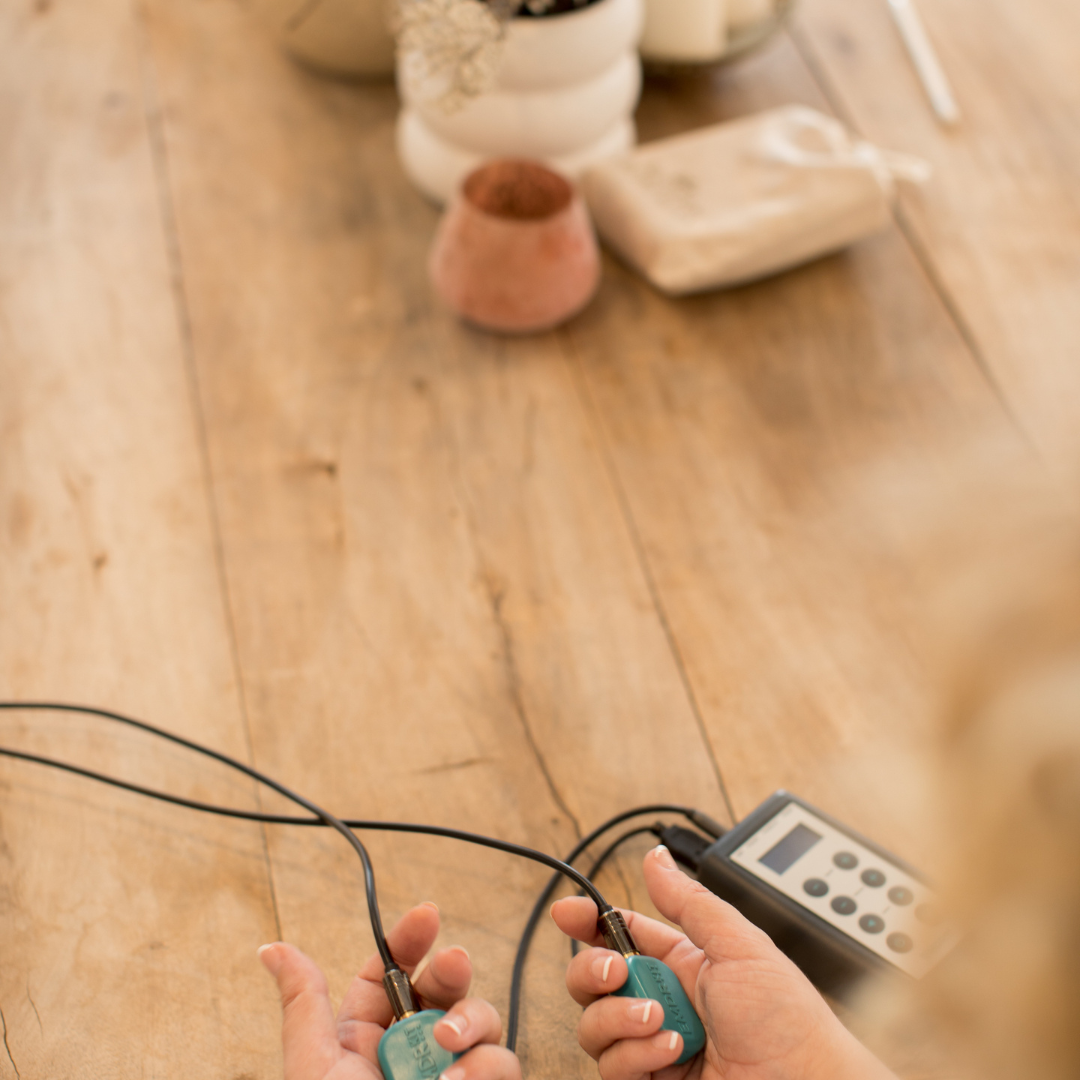EMDR vs. Talk Therapy: Understanding the Key Differences and Choosing the Right Approach
Deciding which type of therapy is best for your mental health can feel overwhelming, especially when there are multiple options available. Eye Movement Desensitisation and Reprocessing (EMDR) and Talk Therapy are two widely practised approaches, each with unique benefits. Both have helped countless individuals heal from trauma, anxiety, depression, and other mental health issues, but their methods differ greatly. Understanding the distinctions between EMDR and Talk Therapy is the first step toward making an informed decision about which path is right for you.
What Is EMDR Therapy?
EMDR, or Eye Movement Desensitisation and Reprocessing, is a therapeutic approach developed in the late 1980s to treat trauma and post-traumatic stress disorder (PTSD). EMDR focuses on helping people process traumatic memories and reduce the emotional intensity attached to them. Unlike traditional talk therapy, which primarily involves verbal communication, EMDR uses bilateral stimulation (such as guided eye movements) while recalling traumatic events to help reprocess the memory in a way that reduces its impact.
The theory behind EMDR is that traumatic experiences can overwhelm the brain’s normal processing abilities, leaving the memory “stuck” and causing ongoing emotional distress. Through EMDR, individuals can reprocess these memories, allowing the brain to heal naturally.
What Is Talk Therapy?
Talk Therapy, also known as psychotherapy, is one of the most common forms of mental health treatment. It involves speaking with a therapist to explore thoughts, feelings, and behaviors. Talk Therapy can take many forms, including Cognitive Behavioral Therapy (CBT), Psychodynamic Therapy, Humanistic Therapy, and more. Each approach varies slightly but shares the common goal of helping individuals gain insight into their emotions and develop healthier coping mechanisms.
Talk Therapy is versatile and can address a wide range of mental health concerns, from anxiety and depression to relationship issues and self-esteem challenges. It is often long-term and works by building a deep, trusting relationship between therapist and client.
Key Differences Between EMDR and Talk Therapy
While both EMDR and Talk Therapy aim to improve mental health, their processes are quite different.
- EMDR focuses on directly addressing traumatic memories without requiring the client to verbalise their experiences extensively. Instead, bilateral stimulation, such as guided eye movements, is used to help the brain reprocess the memory and reduce its emotional impact.
- Talk Therapy involves an open-ended discussion between the client and therapist. The therapist helps the client explore their thoughts, emotions, and behaviors, often providing guidance or insight that leads to personal growth.
In short, EMDR is often seen as a more structured, trauma-focused therapy, while Talk Therapy is more conversational and adaptable to a broader range of mental health issues.
Conditions EMDR Is Best Suited For
EMDR is primarily known for its effectiveness in treating trauma-related disorders. It is most often recommended for individuals who have experienced:
- Post-Traumatic Stress Disorder (PTSD)
- Childhood trauma or abuse
- Sexual assault
- Anxiety and panic disorders related to past trauma
- Phobias that stem from traumatic incidents
Because EMDR specifically targets traumatic memories, it can be particularly effective for individuals who have not found success with traditional Talk Therapy. EMDR may also work more quickly in terms of symptom relief for trauma survivors.
Conditions Talk Therapy Is Best Suited For
Talk Therapy is incredibly versatile and can be used to treat a wide variety of mental health conditions, including but not limited to:
- Depression
- Generalised anxiety
- Relationship issues (e.g., couples counselling)
- Self-esteem problems
- Personal development
- Grief and loss
It is particularly useful for individuals seeking to gain deeper self-awareness and insight into their emotional world. Talk Therapy can also address long-standing behavioural patterns and is helpful for those who prefer a more gradual, reflective approach to healing.
How EMDR Works: A Step-by-Step Process
A typical EMDR session follows a structured eight-phase process. Here’s what you can expect:
- History and Planning: The therapist gathers information about your history and identifies which memories to target.
- Preparation: You are introduced to the EMDR process and learn coping techniques to manage distressing emotions.
- Assessment: The therapist and client pinpoint specific traumatic memories and emotions to work on.
- Desensitisation: Bilateral stimulation (eye movements, tapping, or sounds) is used while you recall the memory.
- Installation: Positive beliefs are reinforced, helping you reframe the experience.
- Body Scan: You check for any lingering physical sensations related to the trauma.
- Closure: The session is concluded with relaxation techniques.
- Reevaluation: Progress is assessed in future sessions to see how the memory is now being processed.
This structured approach allows clients to gradually reduce the emotional charge of traumatic memories, often leading to quicker symptom relief compared to other therapies.
How Talk Therapy Works: Techniques and Approaches
Talk Therapy can vary greatly depending on the approach used by the therapist. However, a general session involves a dialogue between the client and therapist, where the client discusses their feelings, experiences, and behaviors. The therapist listens actively and helps guide the conversation to uncover patterns or emotional blockages.
Here are a few common techniques used in Talk Therapy:
- Cognitive Behavioral Therapy (CBT): Focuses on identifying and changing negative thought patterns.
- Psychodynamic Therapy: Explores how past experiences and unconscious processes shape current behaviour.
- Humanistic Therapy: Emphasizes self-growth and fulfilment through self-awareness and personal responsibility.
Sessions are usually more open-ended than EMDR and are well-suited for clients who want to explore their thoughts and emotions over time.

Benefits of EMDR Therapy
The primary benefit of EMDR therapy is its effectiveness in addressing trauma-related disorders. Because it works to reprocess specific traumatic memories, it often leads to faster symptom relief for individuals dealing with PTSD or severe trauma. EMDR doesn’t require detailed verbal discussions of the trauma, which can be a relief for some individuals who find it difficult to talk about their experiences.
- Rapid symptom relief.
- Effective for trauma survivors.
- Does not require in-depth verbal recounting of traumatic events.
Benefits of Talk Therapy
Talk Therapy offers a broader range of benefits because it can address a wider variety of issues. The conversational nature of Talk Therapy fosters self-exploration, helping clients gain insight into their emotions and behaviours.
- Long-term personal growth.
- Applicable to many different mental health conditions.
- Encourages deep emotional understanding.

Can EMDR and Talk Therapy Be Combined?
Yes, EMDR and Talk Therapy can be combined depending on the individual’s needs. For example, someone may begin with EMDR to address a specific traumatic event, then transition to Talk Therapy to explore ongoing emotional issues. Many therapists are trained in both approaches and can incorporate elements of each into treatment.
Potential Challenges of EMDR Therapy
While EMDR can be highly effective, it may not be suitable for everyone. The process of re-experiencing traumatic memories can be intense, and some individuals may find it difficult to engage with the structured process.
-
Intensity of reliving traumatic memories.
-
Not ideal for clients uncomfortable with structured therapy.
Potential Challenges of Talk Therapy
Talk Therapy often requires a long-term commitment to see substantial results. It can be slow-paced, particularly for those dealing with severe trauma or deep-seated emotional issues.
-
Requires long-term engagement.
-
May not provide immediate relief for trauma-specific conditions.
Choosing the Right Therapist for EMDR or Talk Therapy
When selecting a therapist for either EMDR or Talk Therapy, it’s important to find someone qualified and experienced. For EMDR, look for a therapist who is certified in EMDR treatment. For Talk Therapy, search for a licensed therapist with expertise in the specific approach (CBT, psychodynamic, etc.) that aligns with your needs.
How to Decide: EMDR or Talk Therapy?
Ultimately, the decision between EMDR and Talk Therapy comes down to your specific mental health needs. If you are seeking rapid relief from trauma-related symptoms, EMDR may be the best choice.
If you are looking for long-term emotional exploration and growth, Talk Therapy might be more appropriate. Consulting a mental health professional can help guide you toward the right approach for your situation.
Meet Amanda, our EMDR therapist

Amanda is a trauma-informed Art Psychotherapist with a passion for community, connection, and creativity. She is our dedicated EMDR therapist, who also uses art-making to facilitate holistic, client-led healing through a safe, welcoming, non-judgmental therapeutic relationship and person-centred, gentle psychotherapy.
Offering women’s circles, group work, and one-on-one sessions tailored to individuals’ unique needs, with a focus on positive psychology, narrative therapy, and DBT. Amanda specialises in working with neurodiversity, trauma, the LGBTQIA+ community, social inequity, anxiety, and depression.
Read More

Using Art Therapy to Make Big Career Choices
Are you stuck trying to make a career decision and want an alternative way to help make the right choice? Making significant career decisions can be daunting, especially when you're at a crossroads and uncertain about your future. Traditional decision-making...

The Ethics of Reality TV
Reality television has long been criticised for its behind-the-scenes machinations, but few shows spark as much debate as Married at First Sight Australia (MAFS). With its unique premise—matching complete strangers in legally binding marriages—the show claims to be an...
